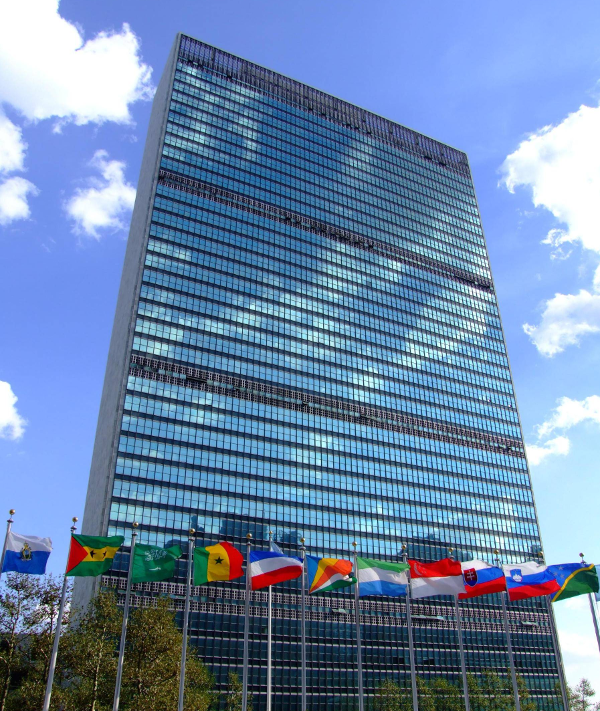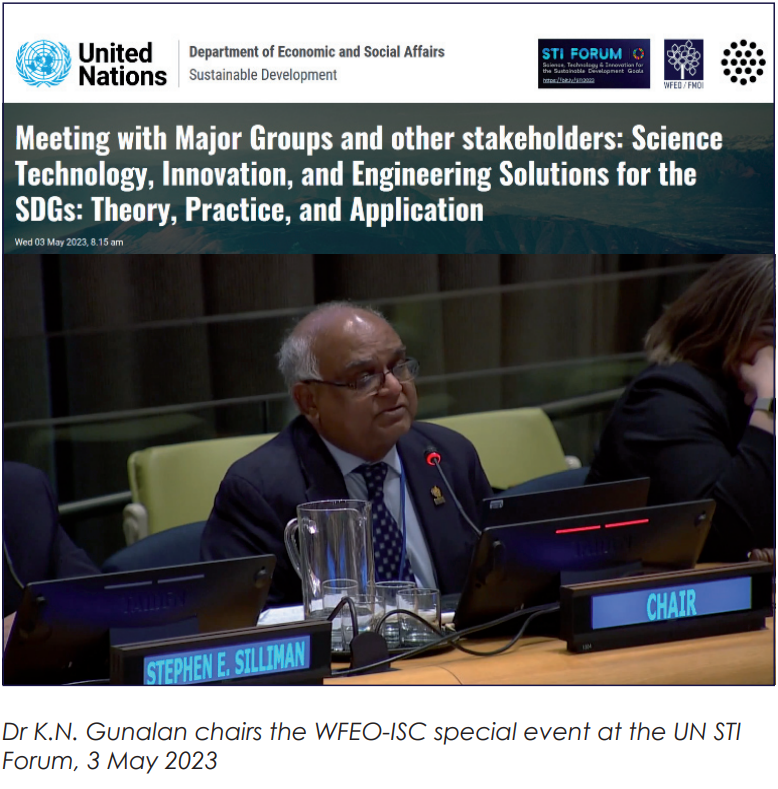
 The WFEO-UN Relations Committee (WURC) was created in September 2011 with the mission of acting as the WFEO interface with different UN agencies as well as intergovernmental organizations requiring engineering content, systems, methodologies and analyses.
The WFEO-UN Relations Committee (WURC) was created in September 2011 with the mission of acting as the WFEO interface with different UN agencies as well as intergovernmental organizations requiring engineering content, systems, methodologies and analyses.
The WFEO UN Relations Committee (WURC) collaborates with the International Science Council (ISC) as co-Chairs of the Scientific and Technological Community Major Group and is actively engaging with the other 20 Major Groups and Other Stakeholders (MGoS) at the UN.
The WURC Chair, Dr K. N. Gunalan and Dr. William Kelly engage in meetings leading up to the UN Science Technology and Innovation (STI) Forum, the most important UN event to discuss science, technology and innovation, and the High Level Political Forum (HLPF), the main UN platform on sustainable development, contributing to both oral and written interventions.
Until the creation of this Committee, the interface with the United Nations Commission on Sustainable Development (UNCSD) and the Economic and Social Council (ECOSOC) was carried out by the WFEO Energy Committee.

WURC’s main objective is to put the Engineering contribution at the forefront of the Major Group’s international efforts towards fulfilling feasible programs and measures with a focus on sustainable development, climate change, environmental issues, and disaster risk reduction.
The Committee concentrates its activities on actions developed within ECOSOC, UNCSD, UNDESA, UNEP, UNISDR, UNFCCC, UNDP, UNESCO, WMO, OECD, UNISDR and the World Bank. WURC activities include those related to the Rio+20 Conference and Post Rio+20.
In 2023, WFEO organized the inaugural STI in Africa Day 2023 and was actively involved in four on-site events in the STI Forum. This is the first time that WFEO has had so much exposure in this forum.
WURC also co-organized a Side event at the UN Water Conference, on 23 March 2023. All these events have put WFEO on a path to greater recognition of the work of engineers.
The activity of WURC during the period 2021-2023 is detailed in the last WFEO Biennial report, available in this link.
WURC Membership list
| Name | Organization | Country |
| K. N. Gunalan (Chair) | American Society of Civil Engineers | USA |
| Bill Kelly | American Society of Civil Engineers | USA |
| Mike Sanio | American Society of Civil Engineers | USA |
| Gong Ke | China Association for Science and Technology | China |
| Kenichi Tsukahara | Science Council of Japan | Japan |
| Ania Lopez | Consiglio Nazionale degli Ingegneri | Italy |
| Alexandre Kounitzky | Swiss Society of Engineers and Architects | Switzerland |
| Martin Manuhwa | Engineering Council of Zimbabwe | Zimbabwe |
| Nahla Ahmad Al-Qasimi | Society of Engineers | United Arab Emirates |
| Firas Bou Diab | Order of Engineers and Architects | Lebanon |
| Nathaniel Matalanga | Institution of Engineers of Kenya | Kenya |
